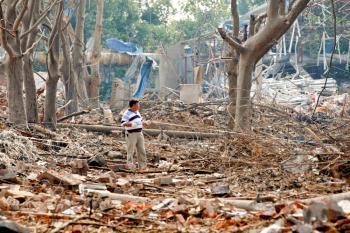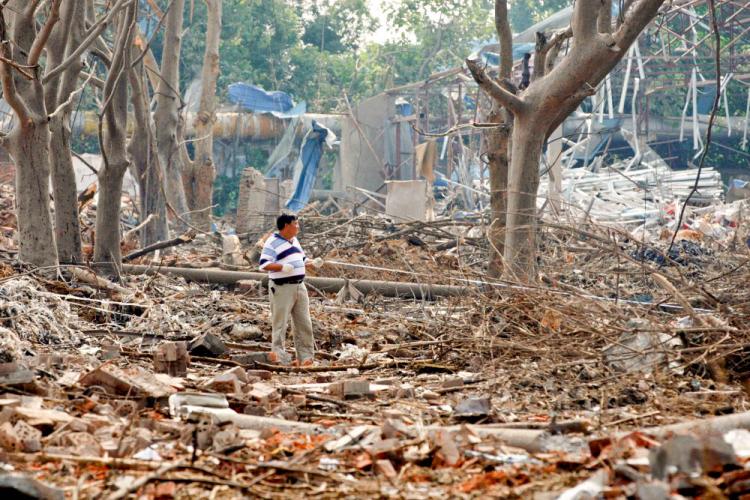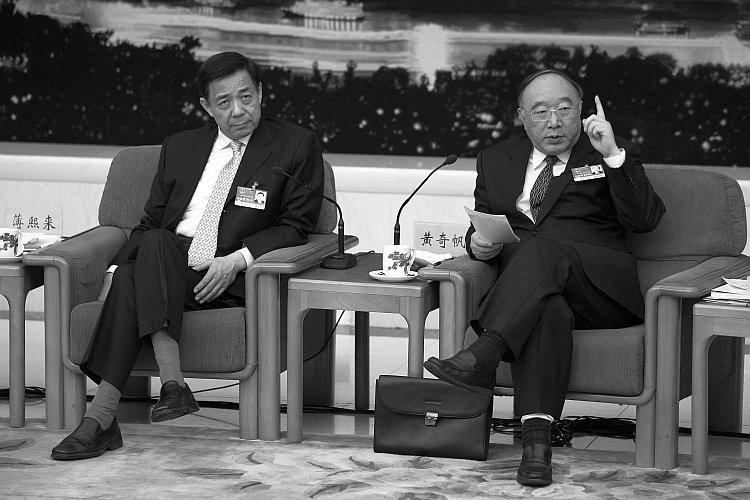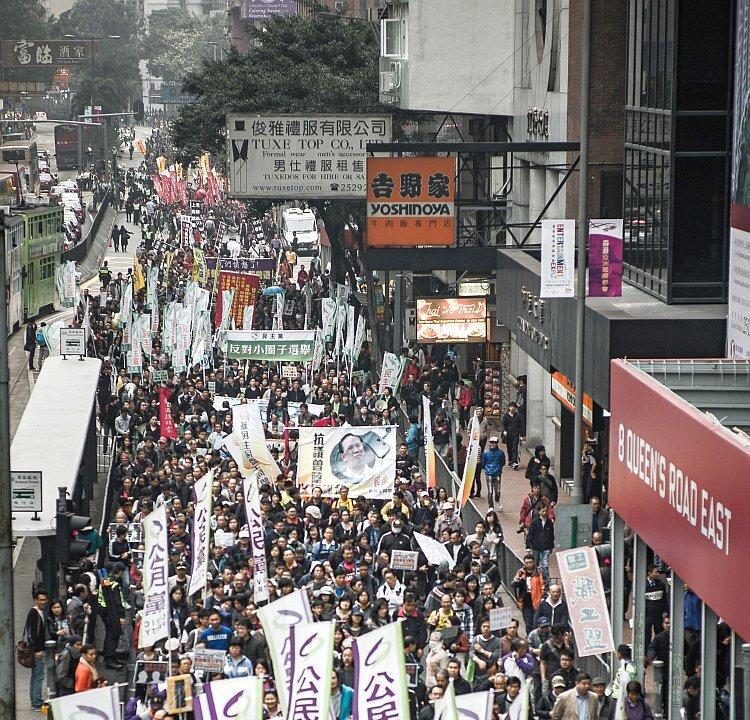Disaster in Nanjing, China Covered Up by Authorities
After an explosion in Nanjing, China, last week, officials tried to cover up the scale of the disaster.

RUBBLE: A man stands among what's left of the buildings shattered by the explosion in Nanjing City, Jiangsu Province. The Epoch Times
|Updated:




